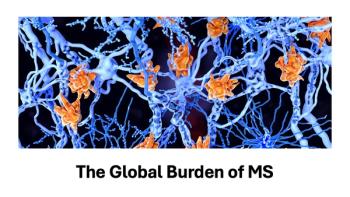
Early Peresolimab Data Could Signal Change in Treatment for RA, Other Autoimmune Diseases
Stimulating PD-1 is a novel approach to treating rheumatoid arthritis, but the strategy could be a fit for other autoimmune diseases.
Newly reported data from Eli Lilly’s phase 2a trial of the monoclonal antibody persolimab is raising hope that stimulation of the programmed death cell protein 1 (PD-1) receptor could provide a new way of treating rheumatoid arthritis (RA), and possibly other autoimmune diseases.
The company published results of their trial—which lasted 12 weeks and included 98 patients—were
“We think this is a new type of therapy,” he said. “Because what it’s doing, first of all, is it’s targeting a key receptor that’s expressed on immune cells, and it’s designed really to tune down the overall immune response.”
By targeting and stimulating the PD-1 pathway, the therapy can restore immune homeostasis without affecting other immune cells, he explained.
“One way to think of this is that PD-1 is the endogenous brakes of the immune system,” he said. “So this may be how we normally put the brakes on the immune system after we fight a viral infection, for example.”
The trial was a double-blind, randomized, placebo-controlled study involving adults with moderate-to-severe RA who had an inadequate response, loss of response, or unacceptable side effects with disease-modifying anti-rheumatic drugs (DMARDS), including conventional synthetic DMARDS, or biologic or targeted synthetic DMARDS. They were split on a 2:1:1 basis into three groups, each of which received treatment or placebo every 4 weeks. The first group received intravenous peresolimab at 700 mg, the second group received 300 mg doses, and the last group received placebo. The primary endpoint of the study was change from baseline in Disease Activity Score for 28 joints based on the C-reactive protein level (DAS28-CRP).
After 12 weeks, the improvement in the 700-mg group was better than that of the placebo group with patients in the higher-dose peresolimab dose improving by 1.09 more points than the placebo group. Nirula said he was pleased with that result.
“It’s consistent with some of the more highly effective therapeutics that are approved so far,” he said.
Nirula noted that the DAS28-CRP endpoint is a composite endpoint that includes numbers of swollen and tender joints in key areas like the hands, shoulders, and knees, but also at patient’s own assessments of how they are doing.
“Compared to the placebo arm, we saw a reduction in swollen and tender joints that was about twice as much as on placebo,” he said.
That said, this was just a phase 2a study, so Nirula said there are many questions yet to be answered. What’s next is a phase 2b study, for which recruitment is already underway. That study will not only seek to confirm the therapy’s safety and efficacy, but will also test several doses to better understand the most appropriate dosing.
Looking further into the future, Nirula said he sees the potential for this type of therapy to be used in other autoimmune conditions.
“At this point, the main thing to say is we think there is the potential in several other autoimmune diseases,” he said.
Newsletter
Get the latest industry news, event updates, and more from Managed healthcare Executive.























